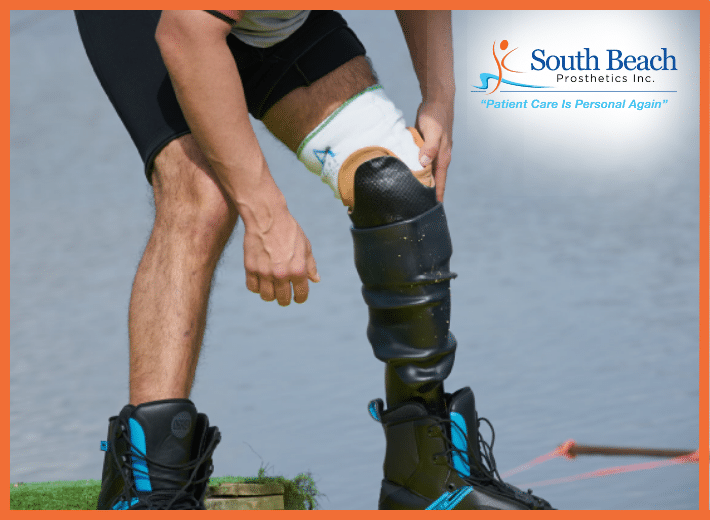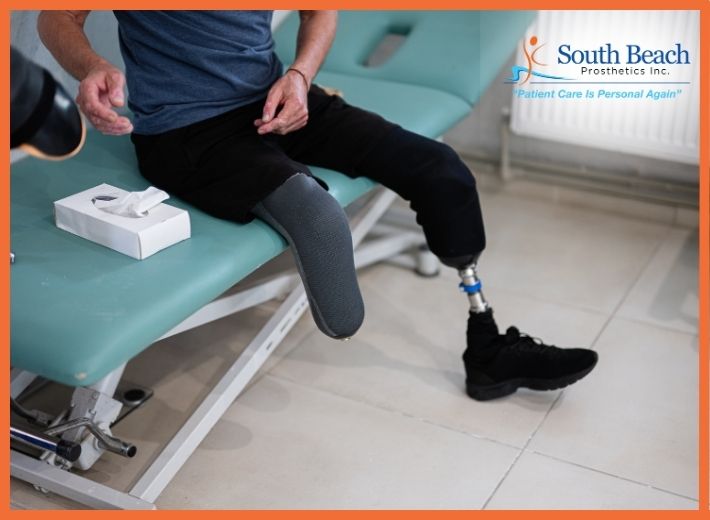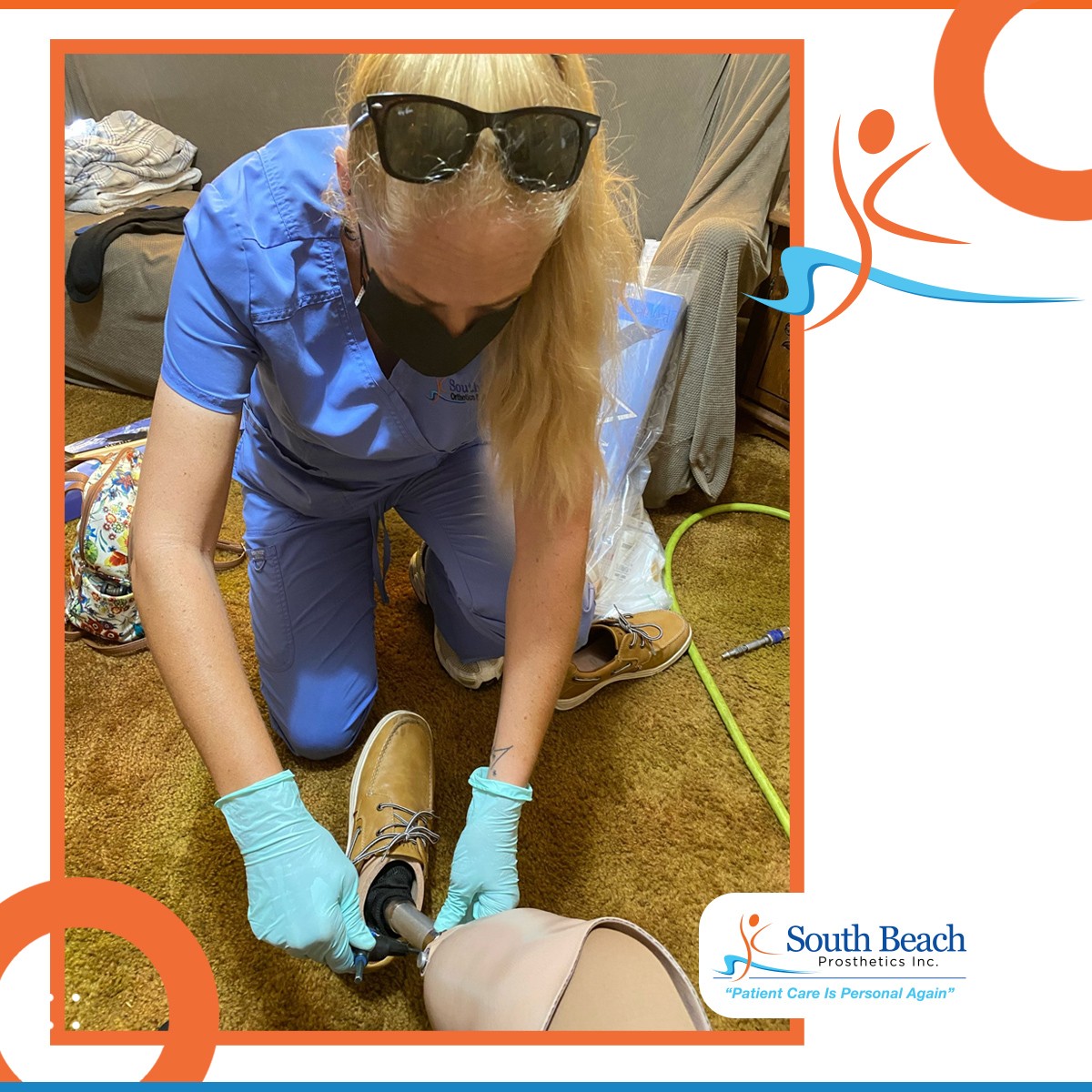Living with limb loss can be a challenging and emotional experience. In addition to the physical adjustments and limitations, amputees often face the hurdle of navigating the healthcare system to access quality prosthetic care. Unfortunately, many amputees experience medical gaslighting, a harmful practice where healthcare professionals dismiss or minimize their concerns and needs. As a prosthetics company, our mission is to empower amputees to advocate for themselves to access the best possible care. You’ll find nothing but caring and empathetic people at South Beach Prosthetics who are not satisfied until you are feeling comfortable and well.
“As an academic allergist/immunologist and autoimmune patient, the recent headlines recounting stories of medical gaslighting don’t surprise me,” wrote Kara Wada at Medpage Today late last year. “Daily, I see patients who report having their symptoms second-guessed, minimized, or outright dismissed.”
What headlines was Dr. Wada referring to? Well, there was a New York Times article titled “How to Spot ‘Medical Gaslighting’ and What to Do About It.” The Today Show ran a five-minute report slugged “How to Navigate ‘Medical Gaslighting’ When Doctors Dismiss Your Symptoms.” WebMD chimed in with a piece titled “When the Doctor Dismisses Your Concerns.” Outlets as disparate as Health.com, Psychology Today, Pop Sugar, Business Insider, and Scary Mommy brought attention to the issue as well. Google search volume on the term “medical gaslighting” went through the roof.
In short, the idea struck a real nerve among patients—especially patients with limb loss and other disabilities. “The medical system is built for patients with ‘quick fix,’ acute illnesses,” wrote Trinity Lowthian at Cripple Media last January. “When a patient doesn’t fit into a well-defined box, this leads to a phenomenon that is very common among people who have an undiagnosed or rare condition: medical gaslighting. If the symptoms are not easily explainable, it is common for [doctors] to blame it on the patient’s own faults instead of acknowledging that they do not know the answer.”
This phenomenon is a corollary to the study we highlighted in our current issue, which found that discrimination against people with disabilities is shockingly common within the medical profession. And the root causes of both are the same: Doctors aren’t given the training, technology, staffing support, and other infrastructure they need to care for patients who fall outside the fat part of the bell curve. Medical administrators have optimized the US health system to efficiently care for ordinary patients at a massive scale. Since patients with disabilities are extraordinary by definition, they require care providers to adapt in ways they’re simply not equipped to do.
The very best practitioners find ways to transcend the system’s limitations and provide whatever resources each patient requires, whether it’s “efficient” or not. But the average practitioner doesn’t. Even if they want to do more for patients with complex needs (and most of them do), they often can’t because of the barriers raised by insurers, hospital policies, regulatory requirements, and so forth. But when the system fails a patient, clinicians are often loathe to acknowledge (or even recognize) what’s actually happening. It’s much easier to blame unresolved symptoms on a patient’s “unrealistic expectations,” “stress and anxiety,” or “bad attitude” instead of pointing the finger at the dysfunctional healthcare model that pays the doctor’s salary.
In the end, healthcare professionals don’t gaslight because they truly think their patients are crazy. They do it because the healthcare system itself is crazy. This is a dangerous truth that most people don’t want to say out loud. It’s much safer to define the system as rational and the tough cases as irrational.
So how do you hold your own? Here are some tips:
How Amputees Can Combat Medical Gaslighting
Define the mission. Have a clear statement of your objective or concern, and focus it on your quality of life. A vague complaint such as “I’m having a lot of pain” is too broad and leaves too much up to the clinician’s interpretation. Narrow it to actionable steps, such as: “I’m seeking help with pain management so I can reach the following goals: First, so I can resume my regular workout regimen; second, so I can get better sleep.” Contextualize the symptom(s) within a whole-person perspective.
Ask about Plans A, B, and C. Even the most egotistical clinician knows they don’t have all the answers and that medicine is an inexact science. There’s never a guarantee that any particular treatment will solve a problem, so get a sense of what your options are—if Plan A doesn’t work, what’s the next step? If I’m not totally sold on Plan A, can it be modified or tweaked so I feel better about it? Might Plan B or C ultimately be a better fit to achieve my objectives? What’s the risk/reward profile of each option?
Don’t challenge the clinician; ask them to educate you. If you’re not getting the answers you want, you’ll only make things worse if you directly challenge the practitioner’s opinion. Instead of reciting facts and figures that you read on WebMD, ask the clinician to share their knowledge and expertise: “I’m interested in treatment X; I’ve read it sometimes helps in cases like mine. Do you think I’m a good candidate for that?” Have them explain the why behind their recommendations, and make sure they understand the why behind your own preference or opinion.
Focus on results. Keep detailed records of how well you’re responding to treatment. If you’re not making progress toward your goals, don’t dwell on your symptoms or your subjective feelings. Just state the objective data. To use the example from “define the mission” above: If the mission is to resume your regular workout regimen, and you’re still not able to do that, give the specific facts of the case. “When I try to run, the back pain gets too intense after half a mile and I have to stop”; or, “My pain wakes me up three nights a week on average, and I have to wrap my leg in ice to get back to sleep.” If Plan A isn’t showing results, ask how much longer it makes sense to stick with it (and why) before pivoting to Plan B.
We understand the unique challenges you’re facing and are committed to providing the highest quality prosthetics and support. Contact us today at (888) 819-4721 to schedule a consultation with our experienced team and take the first step towards regaining your mobility and independence. Follow us on Instagram @SouthBeachOP for more resources and inspiration from our community of amputees.
Reference: [https://livingwithamplitude.com/medical-gaslighting-amputees-limb-loss/]




